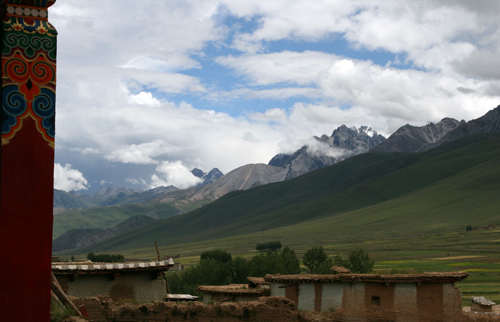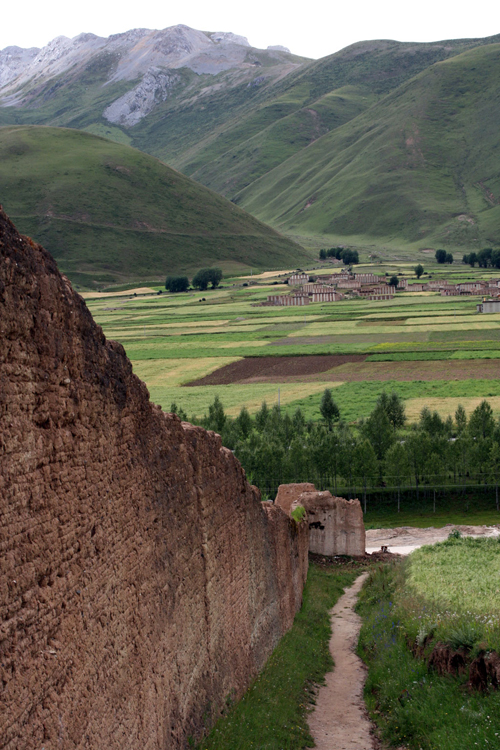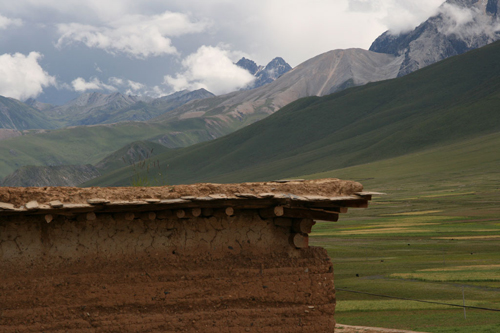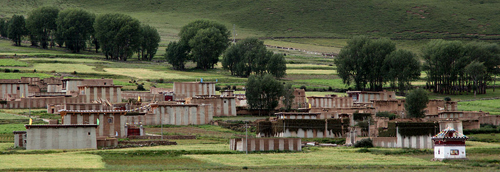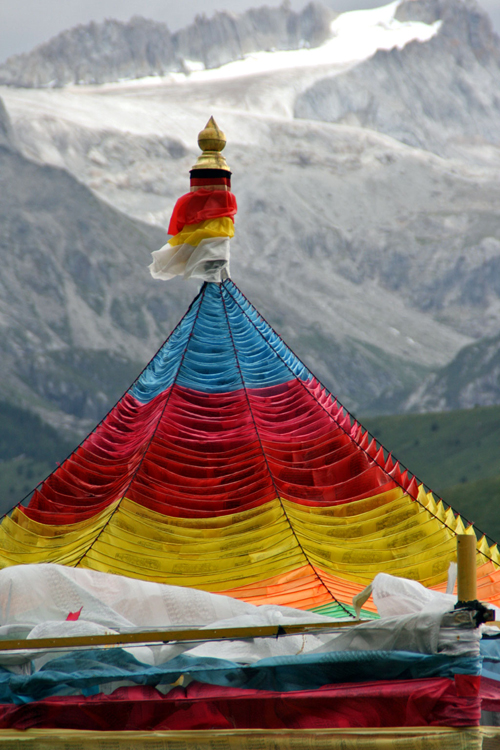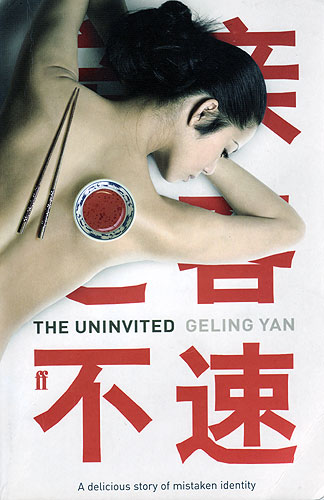A Few Days in Zhangye (Gansu Province) 张掖
Stage 6: Zhangye and around
(see stages 1 2 3 4 5 of our 2011 trip)
& Danxia Landforms Geology Park 张掖丹霞地貌
& Mati Si / 马蹄寺
A Few Days in Zhangye: Getting there from Alashan Yuoqi
A few days in Zhangye 张掖, the friendly and attractive city in western Gansu province, is best way to get to know this remote area of China. Zhangye is only a three to four hour bus ride away from the Inner Mongolian town of Alashan Youqi, the gateway to the Badan Jarain Desert. And, as the friendly ticket lady at Youqi’s bus station had assured Adam two days ago, there are no problems getting tickets. So we swap the tickets for the 15.00 bus which the Badain Jaran travel agency had erroneously bought us, and hop on the 8.30 one instead.
The bus starts out half-empty, but doesn’t stay that way for long. This is still peasant country, where local people prefer to line up by the road side with their sacks and bundles, waiting for the bus to pick them up, rather than make their way to the bus station. The main difference with 20 years ago is that most of the transactions, involving pick- ups and drop- offs, are arranged on mobile phones these days.
The other thing that takes us back into time is the speed of the ride; or rather, the lack of it. In fact, we have seldom come across a driver less in a hurry. Though we normally want our buses to go slowly and carefully, ever fearful of accidents, even we think that this guy could speed up a bit.
Continue reading “A Few Days in Zhangye”



